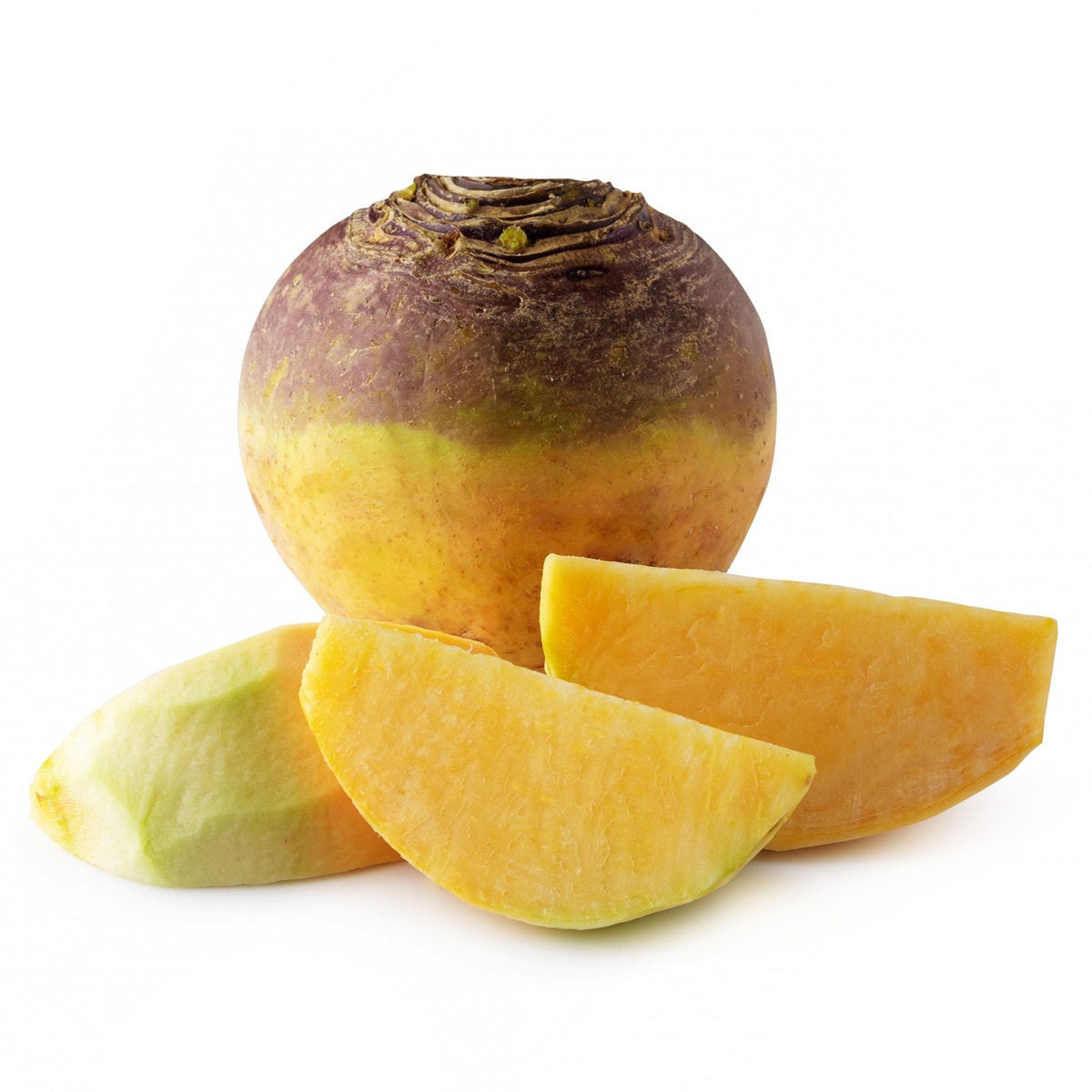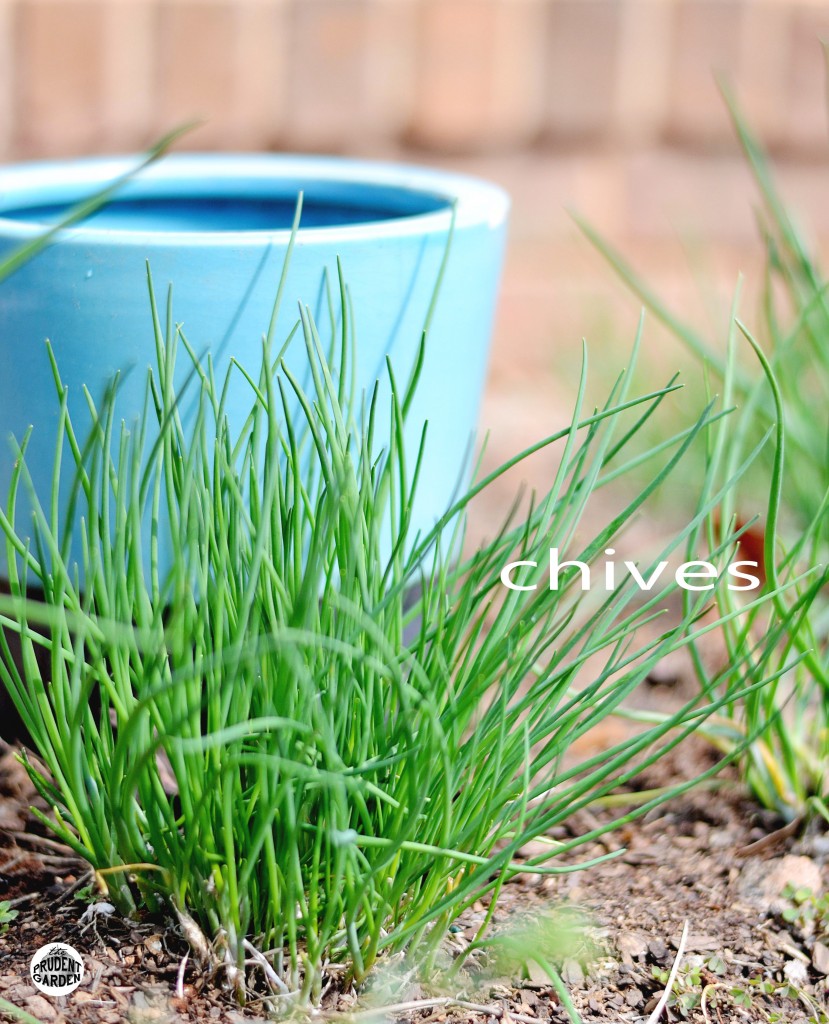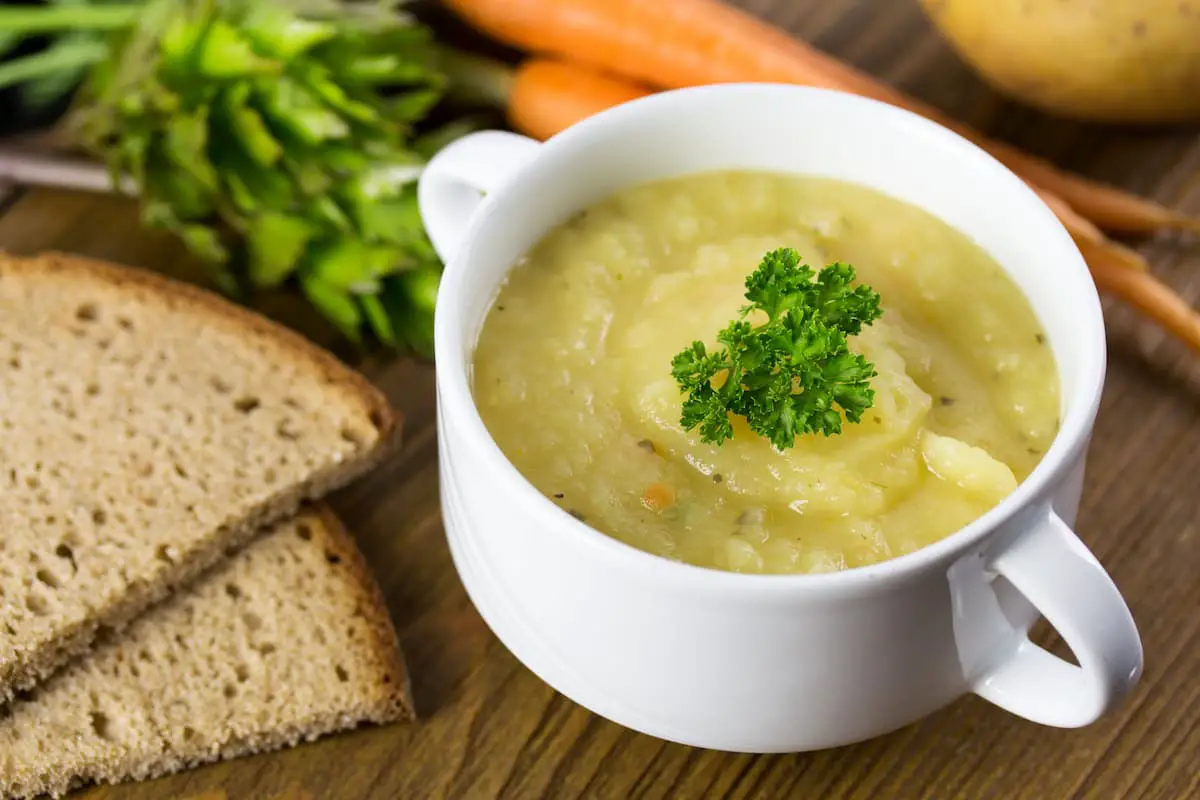Loaded Potato Soup is thick, creamy, and glutenfree, plus it's loaded

can you freeze vegetable soup with potatoes in it thevegetablelife
The Process of Freezing Potato Soup: To freeze potato soup, start by allowing it to cool completely. Once cooled, transfer the soup into airtight containers or freezer bags. Be sure to leave some room at the top of the container or bag to allow for expansion as the soup freezes. Seal the containers or bags tightly and label them with the date.

Can You Freeze Swede? Go Cook Yummy
2. Hold back the dairy from creamy soups. Dairy does not freeze well. Freezing damages the fat molecules, which can make your soup split and become grainy when defrosted. Luckily, there's a pretty simple solution: Just omit the dairy when initially preparing the soup. Most recipes for creamy soup add the dairy towards the end of cooking anyway.

The Ultimate Loaded Potato Soup A Simple Tweak
First, a serving of thawed potato soup should never be frozen a second time. That means you should eat the thawed soup within 2 to 3 days for best results. Summary. Now that you know how to freeze potato soup properly, you can store as much of this delicious soup in the freezer and enjoy it at a later date.

Pin on FOOD
Much like using the proper freezing techniques, it's also important that you defrost potato soup correctly. The goal is to prevent food from entering the danger zone, which according to the U.S. Department of Agriculture is 40 to 140 degrees Fahrenheit since it's the most hospitable for bacterial growth. In this case, you must stop believing defrosting myths and only use one of three.

Loaded Potato Soup is thick, creamy, and glutenfree, plus it's loaded
Let cook until mixture comes to a boil. Once at a boil, reduce heat, cover, and let simmer for 20-25 minutes or until potatoes are tender. Using a masher, mash some of the potatoes in the pot to create a thicker consistency. Add in 1 cup of cheddar cheese and ⅔ of the cooked bacon.

Can you Freeze Tomato Juice? Here's How to Do It Right
How to freeze potato soup. Make your potato soup first, using only fresh ingredients (ie. not ingredients that were previously frozen). Leave the soup to cool down at room temperature. Pour into a freezer suitable container with a lid or portion the soup into individual soup beakers.

Can You Freeze Potato Soup? The Best Way Foods Guy
Absolutely, you can freeze potato soup! Freezing is a convenient way to preserve your favorite soup to have for leftovers. Whether you have a surplus of homemade soup and want to freeze it to serve later or want to prepare the soup in advance, freezing is a great option. Just follow some simple steps to ensure your potato soup remains delicious.

Loaded Potato Soup RecipeCooking with Chives
Yes, you can freeze potato soup with dairy in it. However, it's important to note that dairy products such as milk and cream can sometimes separate or become grainy when frozen and thawed. To help prevent this, you can try adding the dairy to the soup after it has been thawed and reheated. 2.

Can You Freeze Potato Soup? Can You Freeze
If you're preparing chunky potato soup to freeze in a batch, you need to plan. Take it off the heat when your soup is about ¾ cooked. Separate the soup you wish to freeze from the soup you want to eat now. Once you've set aside the soup to be frozen, leave it to cool on the countertop before freezing.

Can You Freeze Carrots Here are the answers for FAQs
Here is a step-by-step guide on how to freeze potato soup: Step 1: Allow the potato soup to cool down. Step 2: Portion the soup, if desired. Step 3: Choose appropriate freezer containers. Step 4: Ladle the potato soup into the containers. Step 5: Seal and label the containers. Step 6: Place the containers in the freezer.

Twice Baked Potatoes (Make Ahead and Freeze) Valerie's Kitchen
Yes, you can freeze potato soup. Although there are little complications with freezing the soup, potato soup can be preserved for up to 6 months in the freezer. The dairy products used in making potato soup are the culprits responsible for any difficulty faced in the freezing of the soup. Ingredients like cream and cheese usually separate after.

Can You Freeze Potato Soup?
Experts say potato soup doesn't freeze well. Freezing soups with potatoes can become dry, because potatoes will sponge up moisture, and have a tendency to become grainy when defrosted. Plus, dairy-based soups can separate and lose their creamy consistency. All in all, potato soup is one to enjoy immediately. 2 / 31.
Fueling with Flavour Fully Loaded Potato Soup
How To Freeze Potato Soup: Cool the soup: Allow the potato soup to cool completely at room temperature before transferring it to freezer-safe containers. Hot or warm soup can cause condensation and potentially lead to freezer burn. Freezer containers: Select freezer container or freezer bags that are specifically designed for freezing to ensure.

Can You Freeze Potato Soup? Here's How You Can Do This Right Frozen
It's best to freeze your soup in single meal serving sizes, whether that meal is for a family of 4 or for just a single lunch, separate the soup accordingly. Potato soup should not be thawed and then refrozen, regardless of whether you reheat in between or not. Transfer the soup to either a freezer-safe Ziploc bag or a freezer-safe Tupperware.

Freezing Potato Soup Do You Really Want To? (Explained) Easy Freezing
The best practice is to transfer the frozen soup to the refrigerator and let it thaw overnight. For a quicker thaw, place the sealed container in cold water, changing the water every 30 minutes until the soup thaws completely. To reheat your frozen potato soup, use a slow cooker on medium-low heat for gradual warming.

LOADED BAKED POTATO SOUP cookingfun Baked potato soup recipe
Steps to Freeze Potato Soup Successfully. Cooling the Soup: Before freezing, ensure the soup is at room temperature. Rapid cooling can be achieved by placing the pot in an ice bath. Choosing the Right Container: Use airtight containers or heavy-duty freezer bags. This prevents freezer burn and preserves the soup's flavor.